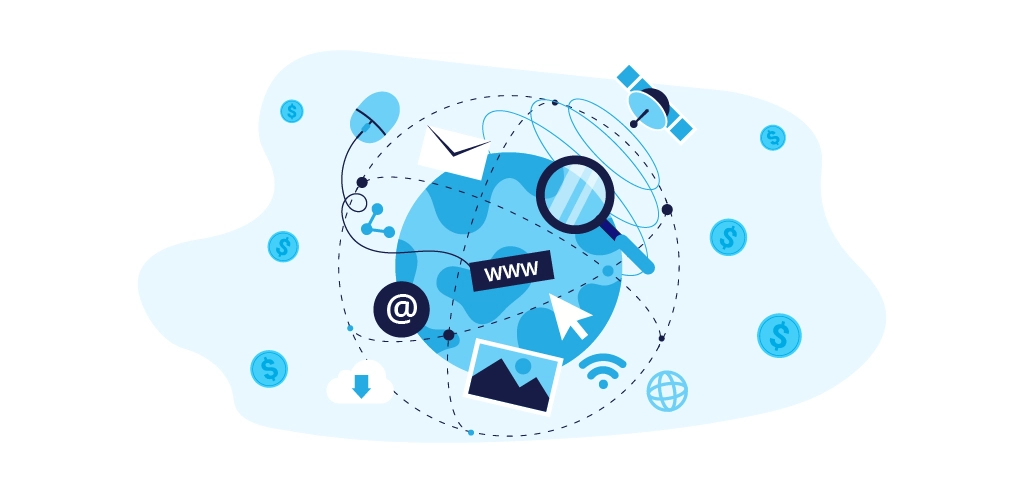Internet Service Providers (ISPs) are the backbone of our digital lives, enabling us to stay connected with the world. Whether for personal use or business operations, having a reliable internet connection is essential. However, as with any service, there is a cost associated with it. This is where ISP billing comes into play. Understanding how ISP billing works can help users manage their expenses better and avoid unexpected charges.
What is ISP Billing?
ISP billing refers to the process by which internet service providers charge customers for the internet services they provide. This involves generating invoices based on the type of internet plan, data usage, additional services, and any other relevant charges. The billing process can be straightforward for basic plans but can become more complex with bundled services, variable data usage, and additional features.
Key Components of ISP Billing
Internet Plan Charges:
- Fixed Monthly Charges: Most ISPs offer a variety of internet plans, each with a fixed monthly charge. These charges are typically based on the speed of the internet connection, the amount of data included, and the type of connection (fiber, DSL, cable, etc.).
- Tiered Plans: Some ISPs offer tiered plans where the cost increases based on the level of service or speed required. These plans can be beneficial for businesses that need high-speed connections.
Data Usage:
- Unlimited Data Plans: Many ISPs offer unlimited data plans, where customers pay a flat rate regardless of how much data they consume. This is ideal for heavy internet users or businesses that rely on constant internet access.
- Metered Data Plans: Other ISPs may charge based on the amount of data used. If a customer exceeds their data limit, they may face additional charges. It's essential for customers on metered plans to monitor their usage to avoid unexpected fees.
Additional Services:
- Bundled Services: ISPs often bundle additional services like TV, phone, and cloud storage with internet plans. While these bundles can offer savings, they can also complicate billing if customers are unaware of the individual costs associated with each service.
- Premium Support and Add-ons: Some ISPs offer premium technical support or add-ons like enhanced security features, which come at an additional cost.
Taxes and Fees:
- Regulatory Fees: In many regions, ISPs are required to collect certain taxes and fees on behalf of the government. These may include federal, state, and local taxes, as well as fees for infrastructure development.
- Service Fees: Some ISPs may also charge service fees, such as installation fees, equipment rental fees, or early termination fees. Understanding these fees upfront can help avoid surprises.
Billing Cycles and Payment Methods:
- Monthly Billing Cycle: ISP billing is usually done on a monthly basis. Customers receive an invoice each month detailing the charges for the upcoming month.
- Payment Methods: ISPs generally offer multiple payment options, including credit/debit cards, bank transfers, and sometimes even cryptocurrency. Automated payments can be set up to ensure timely payments and avoid late fees.
Challenges in ISP Billing
ISP billing, while generally straightforward, can present challenges, particularly for businesses or households with complex needs. Common issues include:
- Billing Errors: Occasionally, errors can occur in billing, leading to overcharges or incorrect invoices. It's important for customers to review their bills regularly and report any discrepancies to their ISP.
- Hidden Fees: Some ISPs may include hidden fees in their billing, such as processing fees or non-standard taxes. Understanding the fine print of your service agreement can help prevent unexpected costs.
- Changing Plans: Upgrading or downgrading internet plans can sometimes lead to billing issues, especially if the change occurs mid-billing cycle. Clarifying the impact on your bill before making changes can avoid confusion.
Best Practices for Managing ISP Billing
To effectively manage ISP billing, consider the following tips:
- Choose the Right Plan: Select an internet plan that fits your usage needs. If you have a clear understanding of your data requirements, you'll avoid paying for services you don't use.
- Monitor Usage: If you're on a metered plan, keep track of your data usage to avoid overage charges. Many ISPs provide online tools or apps to help customers monitor their usage.
- Understand Your Bill: Take time to understand the different components of your bill. If you notice any discrepancies, contact your ISP's customer service immediately.
- Automate Payments: Setting up automated payments can help ensure you never miss a payment, thus avoiding late fees and service interruptions.
- Review Periodically: Regularly review your internet needs and billing statements. As your usage patterns change, you may find that switching plans or ISPs can save you money.
Conclusion
ISP billing is an essential aspect of maintaining an internet connection, whether for personal use or business operations. By understanding how ISP billing works and being proactive in managing your account, you can avoid common pitfalls, save money, and ensure a smooth, uninterrupted online experience. Stay informed, review your bills regularly, and communicate with your ISP to make the most of your internet service.
